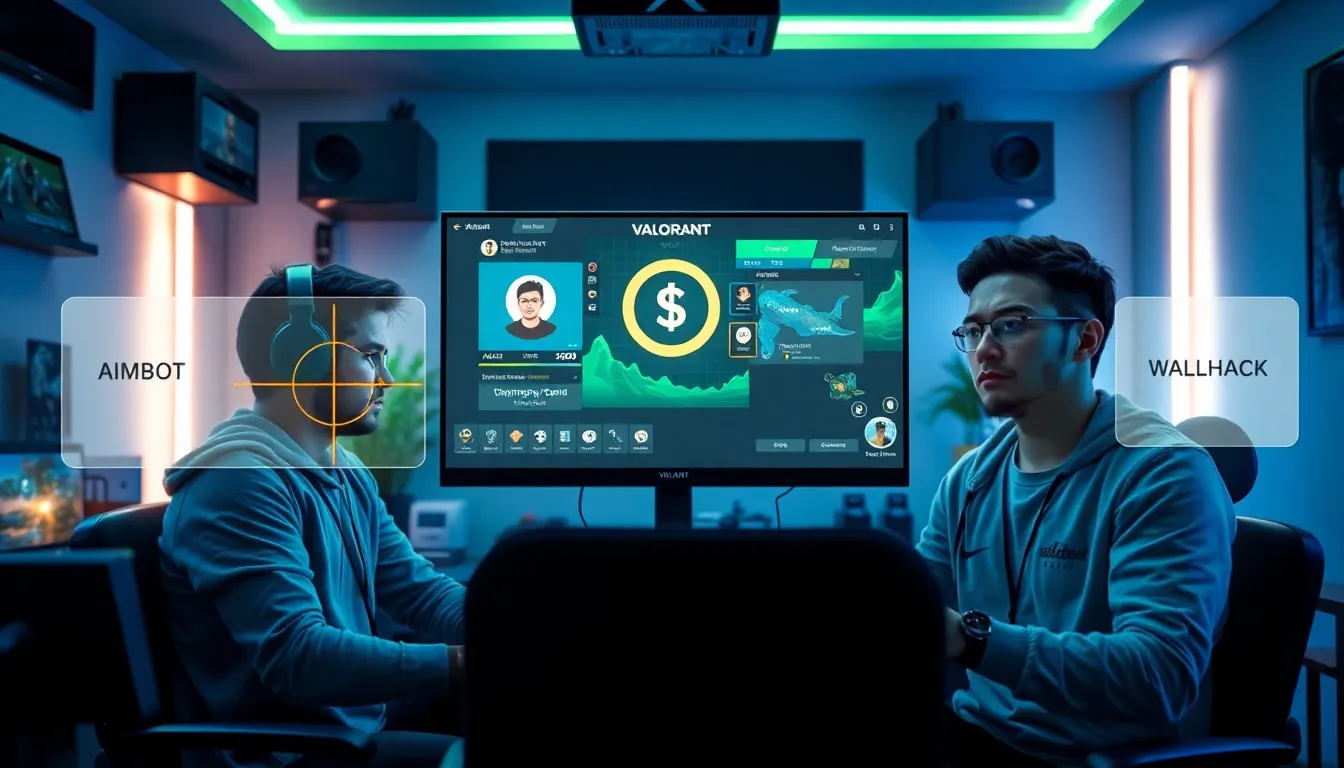Table of Contents
TogglePicture this: you’re in a high-stakes match in Valorant, aiming to clutch that pivotal round. Suddenly, you stumble upon a player who seems to have lightning reflexes and impeccable accuracy. Cheating, in the world of gaming, isn’t just a buzzkill: it’s a full-blown epidemic. In this text, we’ll explore the ins and outs of Valorant cheats, from what they are to the rich tapestry of consequences they weave throughout the gaming community. And if you think cheating is the easy way out, hold onto your keyboard. The risks might just outweigh your so-called advantages.
What Are Cheats in Valorant?

In the realm of gaming, the term “cheat” refers to any unauthorized method that gives players an advantage over others. In Valorant, this can manifest in various ways, enabling players to gain heightened abilities or insights that are simply not available through legitimate gameplay. Cheats are essentially a quick path to victory, but they come laden with consequences that can lead to dire ramifications.
Cheats can come in the form of software programs, script modifications, or simple in-game exploits. Think of aimbots that perfectly align a player’s crosshair with the enemy’s head or wallhacks that allow players to see through solid structures. While these might sound like a gamer’s dream, they unravel the integrity of the competition.
Types of Cheats Commonly Used
Cheats in Valorant can be categorized into several main types. Understanding these will shed light on just how varied and inventive cheaters can be.
Aimbots
Aimbots are perhaps the most notorious type of cheat. These programs automatically lock onto opponents, making it incredibly easy for players to score headshots without even trying. Imagine aiming with pinpoint precision every time. But while it seems appealing, it’s crucial to remember that it robs the player of any real skill development.
Wallhacks
Wallhacks allow players to see through walls and other obstacles, giving them an unfair advantage in positioning and strategy. They can anticipate enemy movements, rendering elements of surprise nearly useless. The playing field is hardly level when one team can see everything, right?
Speed Hacks
Speed hacks are designed to alter the player’s movement, enabling them to zip around the map at unrealistic speeds. This can confuse opponents and leads to scenarios where a team can dominate without putting in the hours of practice that legitimate players do.
ESP (Extra Sensory Perception)
ESP cheats provide vital information about enemy locations, health status, and even weaponry. Such insights can drastically shift the game’s dynamics, allowing cheaters to make strategic decisions based on knowledge that should remain hidden.
The Impact of Cheating on the Gaming Community
Cheating in any game doesn’t just affect individual players, it ripples through the entire community like a poorly thrown grenade. The impact is undeniably negative, leading to frustration, diminished trust, and an overall toxic atmosphere. Think about it: would you want to play a game when you know some players aren’t even using the rules?
Many dedicated players invest time and effort into mastering the game, developing strategies, and improving their skills. When cheating becomes rampant, it undermines their efforts and devalues legitimate achievements. This can eventually lead to a decline in player engagement and a drop in the game’s popularity.
Players often voice their frustrations on forums and social media, and sometimes these complaints escalate to calls for more stringent measures against cheats. The community tends to enforce its own standards, leading to a fragmented player base.
How Riot Games Detects and Prevents Cheating
Riot Games takes cheating seriously and has implemented several measures to combat its occurrence. Their anti-cheat system, Vanguard, operates at a kernel level, making it more challenging for cheats to run undetected. This technology continuously monitors both software and player behavior, ensuring a fair environment.
Game developers regularly update Vanguard to keep pace with new cheating methods, proving that a cat-and-mouse game is ongoing. Also, Riot encourages players to report suspicious behaviors. This collaborative approach helps maintain a healthy game community, where gamers can enjoy a fair contest.
Legal and Ethical Implications of Using Cheats
While it may seem like a harmless way to enjoy a game, using cheats carries significant legal and ethical implications. Many games, including Valorant, have Terms of Service that explicitly prohibit cheating. Violating these terms can lead to account bans or even legal action, although such cases are rare.
Ethically, cheating undermines the very essence of competition. It raises questions about integrity in gaming. A player’s skills should determine their success, not the ease provided by unauthorized software. The gaming community thrives on competition, camaraderie, and continuous improvement: cheats disrupt this delicate balance.
Alternatives to Cheating for Improving Gameplay
There are myriad ways for players to enhance their skill set without resorting to cheats. Consider these alternatives:
Practice
Nothing beats good old-fashioned practice. Players can hone their skills through drills, studying maps, and understanding game mechanics.
Coaching
Many experienced players offer coaching sessions for newcomers. Engaging with a coach can provide tailored advice that fits specific needs.
Join Communities
Engaging with online communities and forums can lead to valuable insights. Players can share strategies, tricks, and even watch tutorial videos made by the pros.
Improving gameplay can be challenging, but the satisfaction of progressing organically is well worth the effort.





